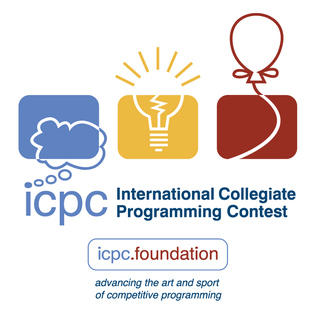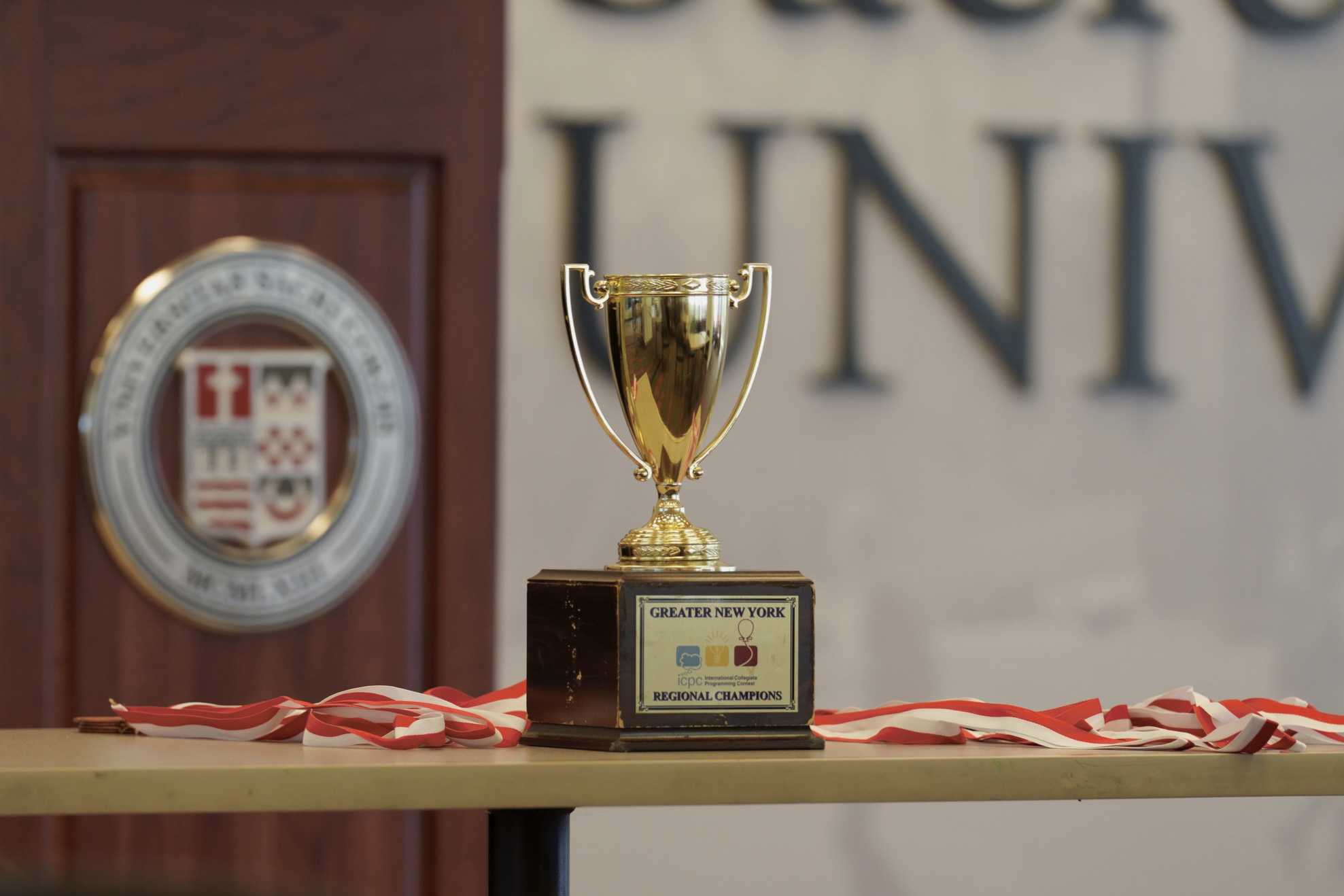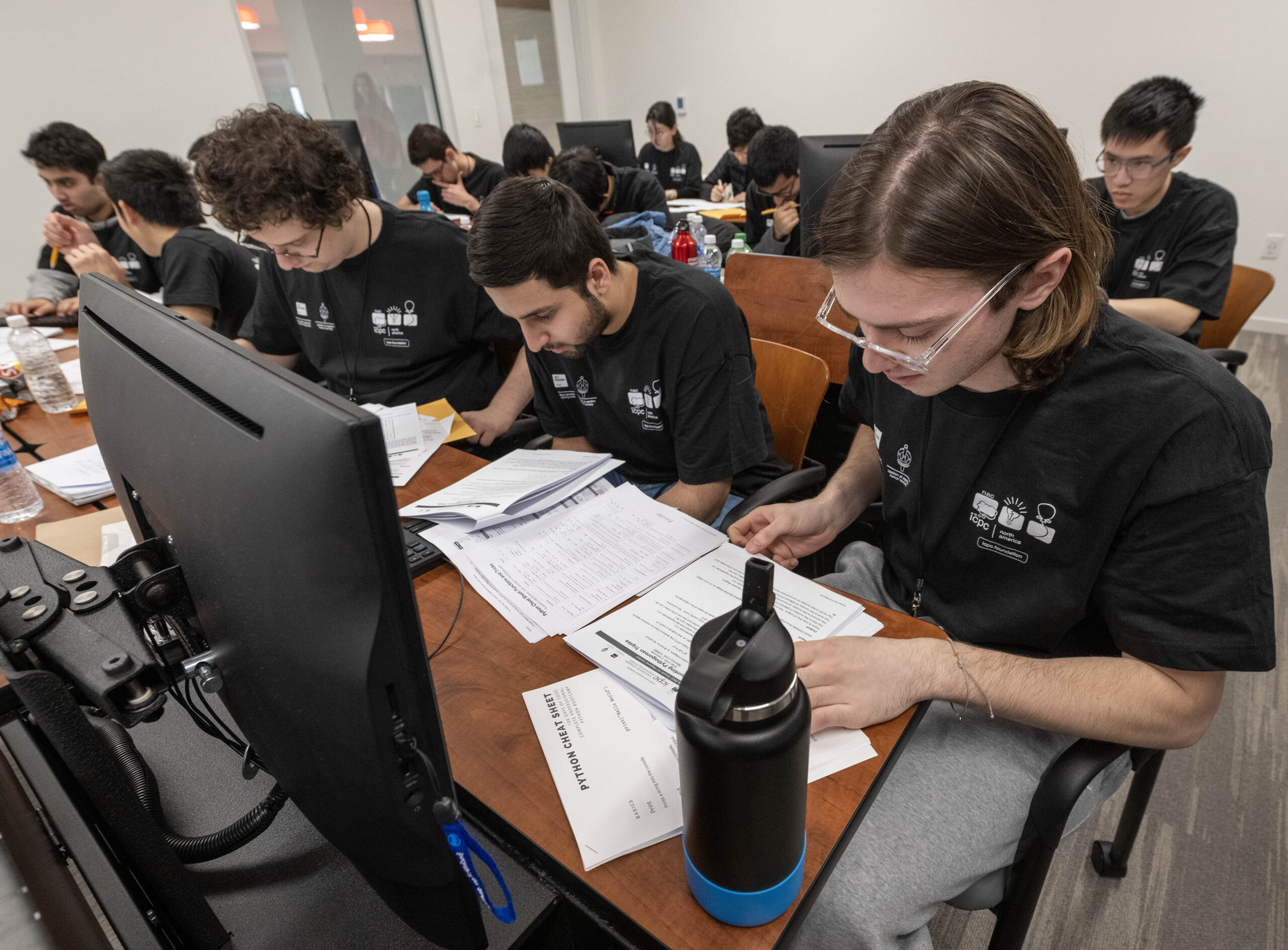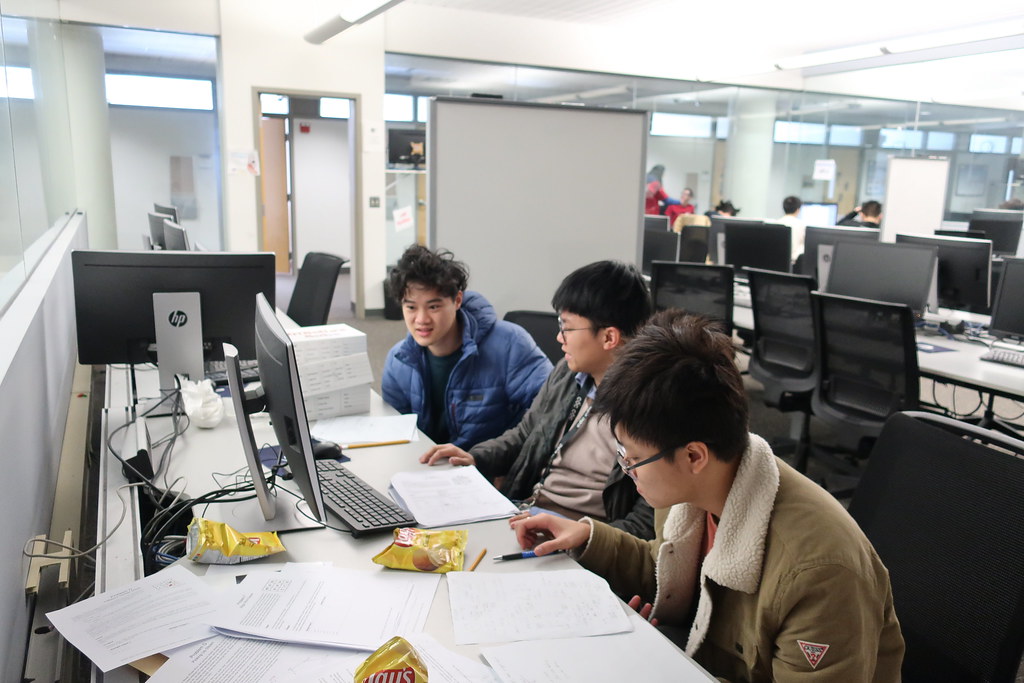Rules & Info
———————————————————————————————
Greater New York NA Regional

About ICPC
The International Collegiate Programming Contest (ICPC) provides college students with opportunities to interact with students from other universities and to sharpen and demonstrate their problem-solving, programming, and teamwork skills. The contest provides a platform for industry and academia to encourage and focus public attention on the next generation of computing professionals as they pursue excellence.
The purpose of the ICPC Greater New York North America Regional Programming Contest (Greater New York RPC) is to bring together as many students from as many different institutions in the Greater New York North America region to compete in a spirit of fun.
Introduction
The ICPC is a multi-tiered competition among teams of students representing institutions of higher education. Teams first compete in regional contests held around the world from September to November each year. The top teams from each regional contest qualify to advance to the next tier of the competition, culminating in the ICPC World Finals.
Organization
The ICPC is organized according to the ICPC Policies and Procedures. For each regional contest, the Regional Contest Director (RCD) is charged with executing a regional contest in accordance with the regional rules and ICPC policies, procedures, and guidelines. Regional rules may vary to accommodate differences in educational systems and host computing facilities.
The contest rules for the Greater New York NA Regional Programming Contest (RPC) conform to The Rules of The ICPC Regional Contests as prescribed by the ICPC Steering Committee. In addition, the following rules and/or clarifications are specific to the Greater New York NA RPC, as allowed under the “Organization” heading in the aforementioned document. Please read and save all rules for reference.
The ICPC Greater New York NA RPC Steering Committee is responsible for establishing contest rules, policies, and guidelines for the ICPC Greater New York NA RPC. The Committee is composed of the Site Directors, the Chief Judge, the Systems Manager, and the RCD. They oversee the conducting of the ICPC Greater New York NA RPC, review The ICPC Greater New York NA RPC Official Rules document, approve registration fees and budget, and recommend the Greater New York NA RCD for the following year.

Official ICPC Regional Contest Rules
The ICPC maintains the official rules that apply by default to all regional contests. Individual regions may clarify and/or extend these rules as they see fit. The Greater New York Region has some rules that are specific the the region. The Greater New York specific rules are found on this page.
Greater New York Regional Rules for Fall 2024
In cases where the Greater New York Regional rules disagree with the ICPC Regional Contest Rules, the Greater New York Regional rules take precedence. In addition, these rules may be changed at any time without notice. A change in rules does not entitle any team to a refund of the contest registration fee.
Eligibility
If you have any questions about the eligibility rules in the ICPC official regional rules, or would like to ask for an exception, please Email the Contest Director. All exceptions must be requested prior to TBD.
Electronic Devices
Except for simple watches, teams may not have any electronic devices in their possession during the contest. This includes, but is not limited to, phones and other communication devices, calculators, calculator watches, PDAs, electronic translators or dictionaries, e-books, audio players/recorders, video players/recorders, scanners, and printers. Mere possession of such a device will result in immediate disqualification, regardless of whether or not it was used.
Contest Information
- Contestants will have five hours to solve the posed contest programming problems.
- Contestants are drawn from the Greater New York metropolitan area. This includes areas of New York state, New Jersey and Connecticut. The portion of New Jersey in this region is all schools north of Interstate-195. There is no strict definition for the portion of New York state or Connecticut included in the Greater New York region.
- The total number of teams permitted to participate in the Greater New York Regional contest may be limited based on the capacity of the site. In general, the total number of teams is about 70.
- Technical information on the contest can be found in the Greater New York Technical Notes.
- Each team must bring one laptop to the contest that successfully boots and runs the ICPC contest image off of a USB thumb drive (at least 32GB in size). Each team will share the single laptop they bring for use during the contest. Instructions for setting up a bootable contest image thumb drive can be found here. On the day of the contest, you will be provided with a thumb drive containing the contest image tailored for the site. It is therefore strongly recommended that you install the contest image on a thumb drive ahead of time to make sure it works on the laptop you bring. Each team will share the single laptop they bring.
- The site will provide printing capabilities through the use of networked printing services shared by all teams.


Late Registration
There is no guarantee for late registration. If you do not register via the ICPC web site by the posted deadline, you may be able participate if contest officials can find the time to add your team, but this gets less likely as the contest gets closer.
Machine-Readable Media
Teams may not possess any machine-readable electronic or magnetic media during the contest unless provided by the site explicitly for contest use. Violation of this rule will result in immediate disqualification, regardless of intent or whether the media were actually used.
Mathematical Knowledge
Please note that this is meant to be a guideline and an aid, not a promise or a rule. What some people consider common knowledge others may consider to be very uncommon mathematics.
Higher math may include:
- matrix operations: multiplication, addition, subtraction
- 3D vector operations: addition, scalar multiplication, dot product, cross product, triple scalar product as volume
- root finding of continuous functions by bisection
- calculus of one variable topics: finding extrema with the help of derivatives
- In other situations needed mathematical formulas will be provided, for instance for statistics.
Number of Problems
Historically, the Greater New York problem set has had at least nine problems, but has sometimes had more than that. The exact number will be posted on the home page a few days before the contest.
Reference Materials
The Greater New York Regional does not limit reference materials other than the above note that no machine-readable materials can be used. Site configurations may limit the space that teams have for their materials, so try not to bring a carload of reference.
The World Finals only allow teams to have 25 pages of reference material in PDF format, which is verified and printed out for the team for its use during the contest. For the Mid-Central USA contest, teams may bring any amount of printed reference material, including printouts of source code. If you have a book that includes a CD, be sure to leave the CD at home; see above.
Registration Priority
Our primary goal is to maximize the number of teams that participate in the contest; our secondary goal is to maximize the number of schools.
- Schools may register as many teams as they like before the registration deadline. The ICPC web site automatically time-stamps each registration and marks it “pending”. (2) Until the deadline, teams will be “accepted” in the order that they registered, up to a maximum of two teams per school, as long as space is available. (3) Third, fourth, and higher teams from a school will always be left “pending” until after the deadline. (4) After the deadline, if any space is available, third teams will be accepted in the order that they registered, then fourth teams will be accepted in the order that they registered, and so on.
There is no limit on the number of teams that may compete from a single institution assuming that sufficient space is available. However, a school’s teams may only compete at a single site.
